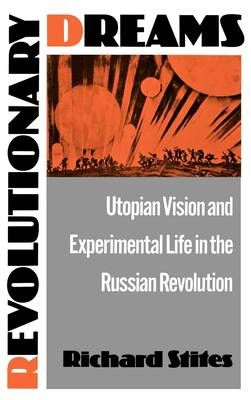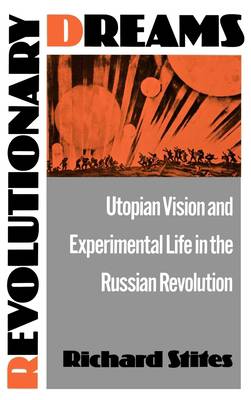
- Afhalen na 1 uur in een winkel met voorraad
- Gratis thuislevering in België vanaf € 30
- Ruim aanbod met 7 miljoen producten
- Afhalen na 1 uur in een winkel met voorraad
- Gratis thuislevering in België vanaf € 30
- Ruim aanbod met 7 miljoen producten
Zoeken
Revolutionary Dreams
Utopian Vision and Experimental Life in the Russian Revolution
Richard Stites
Hardcover | Engels
€ 314,45
+ 628 punten
Uitvoering
Omschrijving
The revolutionary ideals of equality, communal living, proletarian morality, and technology worship, rooted in Russian utopianism, generated a range of social experiments which found expression, in the first decade of the Russian revolution, in festival, symbol, science fiction, city planning, and the arts. In this study, historian Richard Stites offers a vivid portrayal of revolutionary life and the cultural factors--myth, ritual, cult, and symbol--that sustained it, and describes the principal forms of utopian thinking and experimental impulse. Analyzing the inevitable clash between the authoritarian elements in the Bolshevik's vision and the libertarian behavior and aspirations of large segments of the population, Stites interprets the pathos of utopian fantasy as the key to the emotional force of the Bolshevik revolution which gave way in the early 1930s to bureaucratic state centralism and a theology of Stalinism.
Specificaties
Betrokkenen
- Auteur(s):
- Uitgeverij:
Inhoud
- Aantal bladzijden:
- 324
- Taal:
- Engels
Eigenschappen
- Productcode (EAN):
- 9780195055368
- Verschijningsdatum:
- 8/12/1988
- Uitvoering:
- Hardcover
- Formaat:
- Genaaid
- Afmetingen:
- 158 mm x 233 mm
- Gewicht:
- 648 g

Alleen bij Standaard Boekhandel
+ 628 punten op je klantenkaart van Standaard Boekhandel
Beoordelingen
We publiceren alleen reviews die voldoen aan de voorwaarden voor reviews. Bekijk onze voorwaarden voor reviews.











